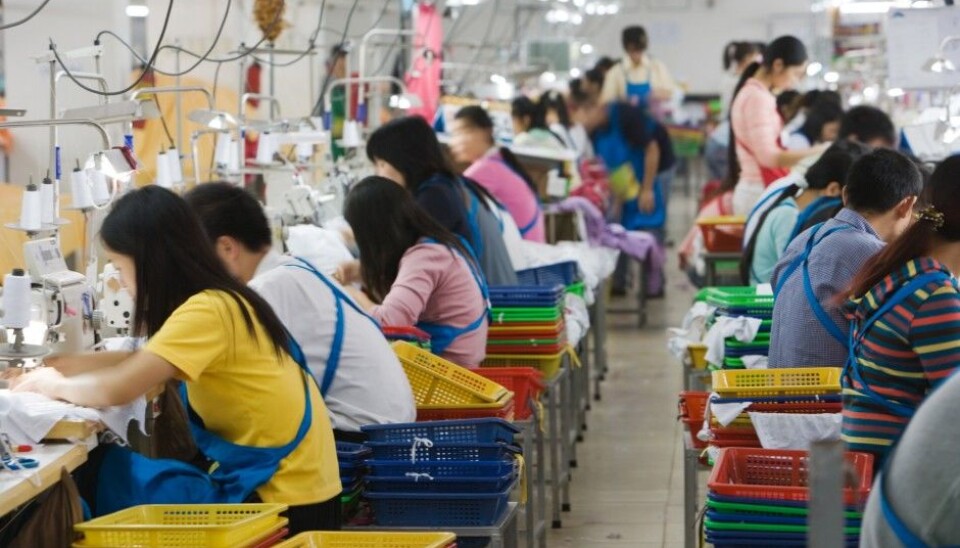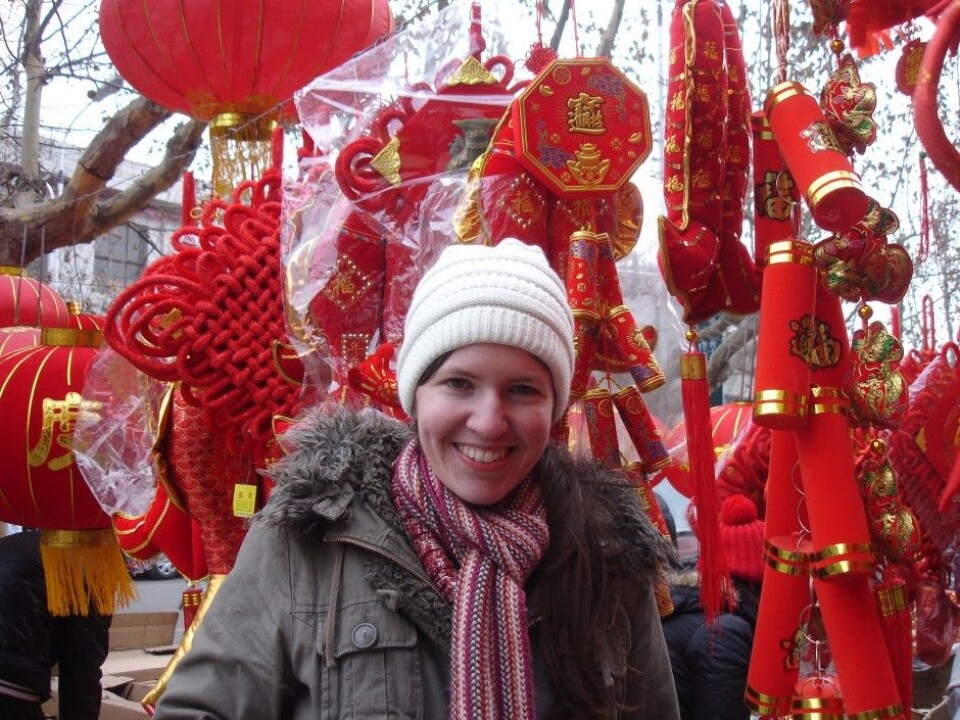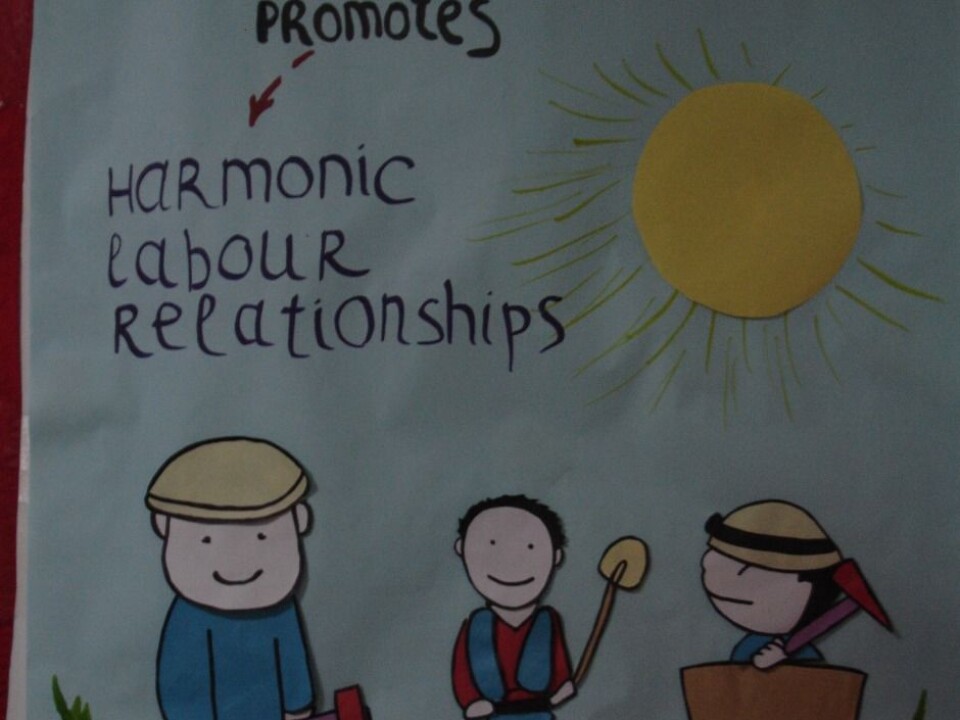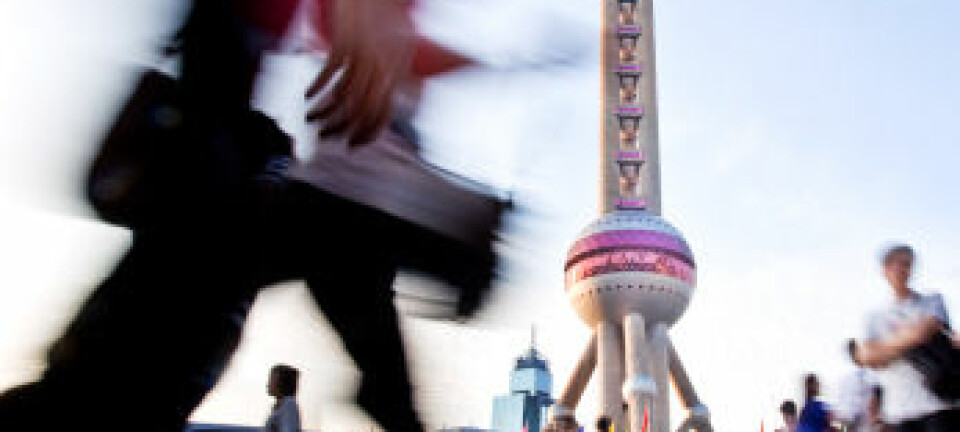An article from University of Oslo

Making the case for China’s underprivileged
Fighting for the rights of migrant workers in China - without over-stepping the limits of what the authorities allow - is a difficult balancing act. But grassroots organizations are becoming increasingly brave.
Denne artikkelen er over ti år gammel og kan inneholde utdatert informasjon.
Through newspapers and social media grassroots organizations fighting for the rights internal migrant workers have found new room to manoeuvre.
"Using language as their weapon, they challenge the state's definition of power," says human geographer Marielle Stigum Gleiss.
Before she embarked on her research she spent a year and a half learning Chinese. And so she was able to interview representatives of 16 of migrant workers organizations in their own language. After her long preparation she could finally study how organizations gained acceptance in newspapers and social media for their struggles.
The people have opportunities of expression and of action. The Maoist ideology of the past is no more, says Gleiss, who explains that the political arena is characterised by both opportunity and limits.

"It is important to see both, in order to describe what is happening as comprehensively as possible," she says.
Paying the price for China's growth
Migrant workers, or internal migrants, are Chinese who move within China’s borders in search of work. According to Gleiss, the majority come from rural communities in the hinterland. Workers flow to the coast and to the cities of Beijing and of Guangdong province north of Hong Kong.
The process is similar to economic migration in Europe. But while the richest countries in Europe acquire cheap labour from the poorest countries in Europe and from other continents, China is "self-sufficient."
In a population, which at last count was measured at 1.3 billion, migrant workers in China total 250 million of those.

Growth is based on the cheap labour of the migrant workers. Grassroot organisations want to expose this reality to the light of day, while official China prefers a rosey painted version of the situation, says Gleiss.
Migrant workers work hard and are often exploited, according to the researcher. Their rights are not protected. Often they do not receive the salary to which they are entitled. The companies they work for can be closed down and restarted again as new entities. There are long days and poor conditions. Most workers accept this, because they have no opportunity to find other work. Many, according Gleiss, have problems getting their children into local schools, partly because of policies that give them access to schooling only in their original location.
"Low quality" people
"Under the planned economy it was not possible to move around in China looking for work. Today's China is totally dependent on migrant workers to build the houses and roads, produce goods and replenish the service industry," says Stigum Gleiss.
As a researcher, she was surprised that migrant workers often referred to as peasant workers, as peasants in the city from the countryside, who have traditionally been looked down upon. Additionly, most Chinese divide society into people of "high quality" - those who live in towns and have a certain educational level, and people of "low quality" who come from the countryside and do menial work.
Gleiss says that it has been very challenging to capture all the linguistic nuances she has encountered while working on her thesis.
Meanwhile, as an outsider I have been staggered to hear people being referred to as good or poor quality. A Chinese researcher familiar with this mindset would probably not have reacted as I did.
Never a direct attack
It is illegal in China to establish unions. There is only one officical union; and it is controlled by the government. Gleiss has found 30 voluntary organisations working for the plight of migrant workers and has visited 16 of them. Some go quite far in criticizing the government. Others have more indirect strategies to promote the interests migrant workers.
The common denominator for those who work in these organizations is that they are driven by a strong degree of activism. Many have a background from journalism.
She points out that the organisations instinctly know the limits to what they can say in an authoritarian regime like China. Among other things they avoid direct criticism of the authorities, avoid the most inflamed political issues, avoid criticizing leaders and avoid expressing there opinions too directly.
They are given greater leeway, when they operate in this way. Several organizations consciously downplay everything that appears political and instead communicate by rosey posters with hearts and smiling people, explains Gleiss.
Unassailable as helpers
She cites a case which one organization was involved in: Migrant workers had incurred chronic and life-threatening lung disease caused by a dangerous type of dust in the workplace.
"Rather than a direct attack on the company concerned, this organization chose to create awareness about the disease and to focus on solutions. They used slogans like "We are saving lives" and "We are caring." In this way they made their work unassailable. Nobody can oppose someone who is saving lives," says Gleiss.
The researcher says that many of the organizations also deliberately use slogans from official Chinese propaganda, such as "harmonious society" and "the Chinese dream."
"There is obviously a limit to just how far such slogans can be stretched," she adds.
Easier to criticize
Gleiss divides Chinese media in two: They are those that are the voice of the Communist Party on the one hand and those that are critical of the authorities on the other. In addition, there is social media, where one can go further than in the newspapers.
"Many organizations try to get their issues into the media. Through their communication strategies they take part in a political struggle over how migrant workers and their social problems are to be understood," says Gleiss, adding that organizations take up themes such as work contracts, wages, and social rights.
"They bring new voices and new perspectives into Chinese public life and thereby challenge the Communist Party's representations of migrant workers and Chinese society," she explains.
She thinks it is important to study what actually works in the given circumstances.
"An organization may start off with individuals and their plight in order to create interest in an issue in newspapers or in social media. My analysis shows the organizations are in fact political, although they do it in an indirect way. That they are able to focus on areas of society where there are problems makes them political actors," she says.
While she was doing fieldwork in China, Gleiss heard several examples of local authorities having begun to collaborate with grassroots organizations.
"The authorities see that the work the voluntary organisations are doing can help to reduce social tensions in their district. By being more accommodating in relation to the needs of migrant workers they can avoid conflict," she says.
Raised up
"There is no doubt that the grassroots organizations have managed to put the situation of migrant workers on the political agenda. While the state has attempted to hush up the problems, organisations help to make the plight of migrants a social problem that must be adressed," says the researcher.
"While the middle class previously viewed migrant workers with a certain disdain as 'peasants in the city', there are signs that they are now beginning to experience them as individuals."
She believes that voluntary organizations in other non-democratic regimes may have something to learn from the strategies of Chinese grassroots organizations.
"I think they have proved that in authoritarian regimes one can create a certain amount of room for manoeuvre. But, naturally, one must tread carefully," says Marielle Stigum Gleiss.
-----------------------
Read the Norwegian version of this article at forskning.no
Translated by: Matthew Rix Whiting


































